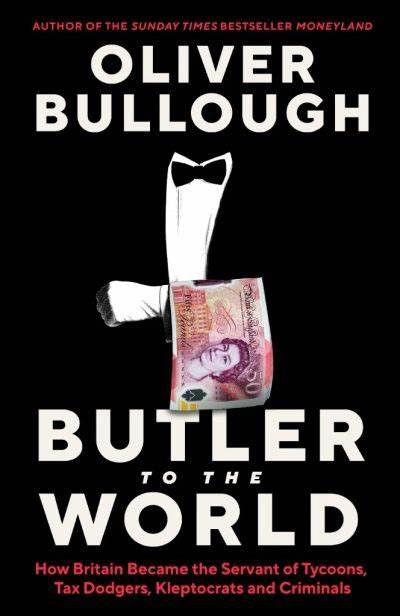Butler to the World
- Spartan Stoic

- May 12, 2023
- 4 min read
by Oliver Bullough
Britain is no longer the global power it was. The elite of this country have found a new niche, in financial service to oligarchs and criminals through loopholes, lobbying and cronyism. This book explores how global elite have positioned themselves to take advantage of the tax havens of the UK. How did we arrive at this problem? Does it truly matter for the UK that elites aren’t paying so much in taxes? Although it is inevitable that, from this book, we’re not going to unearth all of the shady practices and who is doing it, what can we learn about the problem?
Oliver Bullough is a journalist who has already written a book on similar themes, called Moneyland. Given his background, he writes well, maintaining a good flow throughout the book even when explaining potentially tedious topics such as the Eurodollar. That’s the challenge with a book like this: how to maintain interest, explore the nuanced financial workings and circumventions, and develop a bit of a story. Bullough takes the approach of using several smaller stories, from the Scottish limited partnerships (SLPs) used to launder money, the tax haven of the British Virgin islands, a bizarre role of the church in ensuring the cleanliness of Britain’s finances, how gambling companies capitalised on avoiding hefty tax and one amazing story where a client seeks revenge when he gets cheated out of money.
Thrilling Finance?
I particularly enjoyed the story of the client heist, and as one police inspector described, it was so convincing that anyone could have fallen for it. It is admittedly fascinating to see how these people – often criminals, but sometimes not – use workarounds within the system to make money or do favours. Perhaps the alarming part – which I confess I did know about already – is how the tax haven islands such as Gibraltar or the British Virgin Islands are ‘in limbo’ in terms of status. Able to set their own tax rates yet considered affiliated states with Britain, companies can set up there and gain advantages over rivals located in mainland Britain, as seen with the boom in the gambling industry.

Perhaps the butler comparison is a little tedious, probably one of the few criticisms I can level at this book. P.G. Wodehouse’s butler Jeeves and Bertie Wooster in The Artistic Career of Corky. Thankfully these references were mainly confined to the beginning, only occasionally popping up later on.
Hidden in the dark
The main limitation is that a lot of the shady financial practices are hidden, which is partly why barely any of it gets stopped, particularly when influential people are benefitting from them. There’s only so much that can be talked about here, but the detail for the stories was on the whole pretty impressive considering the subject matter.
The manipulation of this loophole is central to the book, and really that is probably one of the simpler premises. But when the book gets more challenging - such as with lobbying by a university or the comparative approaches between the UK and the US when it comes to tackling financial crime - it remains clear, interesting and effective. That is despite the audible sigh I let out, exasperated at the lack of funding such bodies are given, or reading the number of financial bodies supposedly empowered to tackle it. A lack of resources and manpower with many leaving government bodies to go support those exploiting it, for twice the pay. The real problem is the lack of motivation and interest from policy makers to change the state of things. The City is very much benefitting from and in on the process.
The book does a good job of highlighting these problems. It doesn’t just rant and bore on about the problems of conflicts of interest, funding, flawed system structure or role of the City in all of this, but it intersperses these points into the stories and explanation. A book about such frustrating elements can often carry over into your reading experience, perhaps sub-consciously, but I did not find that to be the case here. It ended on a pretty optimistic note, asking what would have to happen to change the systemic issues of Britain in the role of Butler to the rich exploiting a poorly – and perhaps deliberately – structured system.
The fact is it’s going to be difficult, but with valuable books like this one, perhaps there will be change over time. The power balance is in the hands of the elite, and as this book has strived to show, a lot of the facts are of course hidden and out of sight. How to track the untraceable, with company records and ownership hidden in shell companies and held by peers and protected by lobbying politicians? The fact is it’s probably going to take pressure and restructuring for anything to happen. But at least writers like Bullough are shedding light on it.
Final score
I thoroughly enjoyed this book. The flow, explanation and examples were all interesting. The quotations and research from insiders were useful and coloured the story, and although this is a topic that’s easy to feel pessimistic about, perhaps there will be change over time if the common person takes the issue up with their MPs. It might be a while, but this is certainly a worthy read to understand what little we can understand about the topic.
8/10



